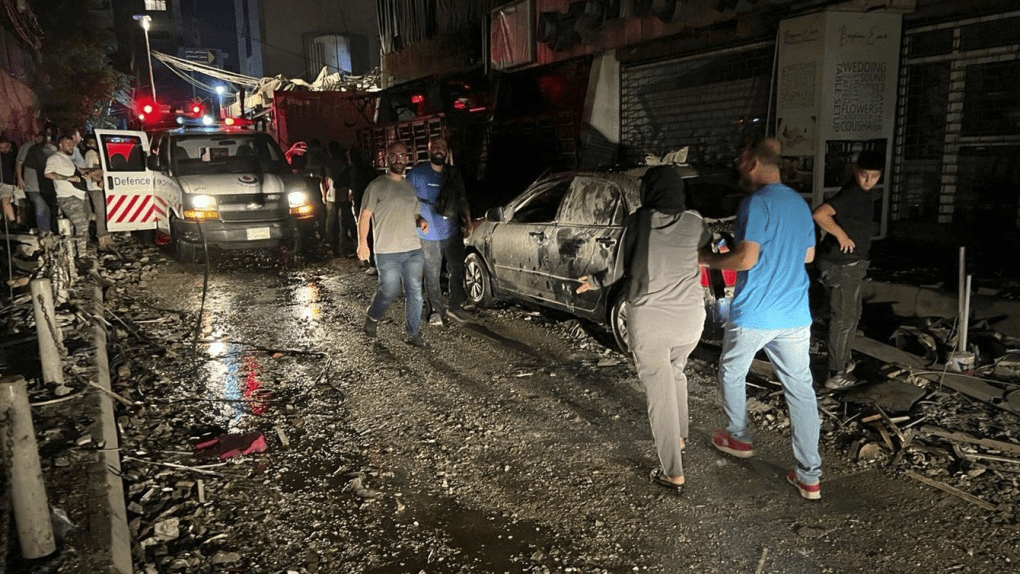
Beirut’s Dahiyeh Neighborhood Faces Daily Life Disruptions and Rising Tensions Following Deadly Israeli Airstrike That Killed Hezbollah Commander Fouad Shukur & Six Others
Fiona Nanna, ForeMedia News
5 minutes read. Updated 6:38PM GMT Tues, 6August, 2024
Despite the looming threat of all-out war in the region, daily life in Beirut’s southern neighborhood of Dahiyeh continues with a semblance of normalcy. The bustling streets are filled with the usual traffic jams and open businesses, even in the aftermath of a recent Israeli airstrike that claimed the lives of prominent Hezbollah figures, including commander Fouad Shukur, and six others.
In the aftermath of the airstrike, Saad Baydoun, a local shop owner, surveyed the wreckage left behind. His shops, which specialized in internet services and sound systems, were completely destroyed, along with his personal vehicle and home. “All of what I had was here; my house was here, and it was destroyed. My family and I were on the verge of dying, but God gave us a new life,” Baydoun recounted. His wife and children are now living with relatives in a different Beirut neighborhood. Reflecting on his misfortune, Baydoun expressed a sense of solidarity with the people of Gaza, stating, “At least I have sympathized with the people of Gaza by experiencing 1% of what they are living through.”
Recent escalations have heightened regional tensions, with the deaths of Hamas political leader Ismail Haniyeh in Tehran and Hezbollah commander Shukur in Beirut, both attributed to Israeli actions. These incidents have spurred fears of retaliation from Iran and its allied militias.
Residents of Dahiyeh, which houses Hezbollah’s headquarters, are expressing concerns for their safety. Some have already begun relocating to other parts of Beirut. This area had previously suffered extensive damage during the 2006 Israel-Lebanon war, when Israeli forces targeted Hezbollah members.
In response to the escalating situation, Hezbollah legislator Amin Sherri assured that the Lebanese government has prepared an emergency plan should a full-scale war ensue. The country reportedly has sufficient supplies of fuel and medicine to last between two and four months. Furthermore, on Monday, Lebanon’s caretaker Health Minister Firass Abiad received 32 tons of medical supplies from the World Health Organization as a precautionary measure.
Amid the uncertainty, the situation remains dire at Beirut’s Bahman Hospital. The facility, situated near the site of last week’s airstrike, continues to care for patients injured in the attack. Among them is Mohammed Fadlallah, who sustained severe injuries and lost his two young children in the strike. Fadlallah, currently undergoing treatment, reflected on the broader struggle, stating, “What are we compared to the people being annihilated in Palestine? The entire issue is a struggle between right and wrong.”
Hezbollah leader Hassan Nasrallah has vowed retaliation for Shukur’s death, underscoring the group’s commitment to responding to Israeli actions. Shukur, a key figure in Hezbollah’s southern Lebanon operations and missile program, was a significant target for Israeli forces.
Over the past 10 months, Israel and Hezbollah have engaged in frequent skirmishes against the backdrop of the Gaza conflict. Despite the ongoing exchanges, the conflict had thus far remained contained, avoiding the full-scale war many fear might now be on the horizon.

